Confederate Truths: Documents of the Confederate & Neo-Confederate Tradition from 1787 to the Present.
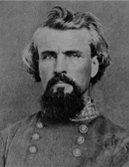

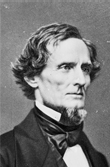
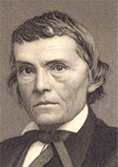


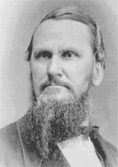
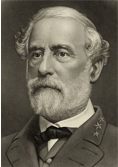
"Confederate Veteran" magazine against an African American postmaster in Indianola, Mississippi
Confederate Veteran, Senator McLaurin, of Mississippi, Vol. 11 No. 2, February 1903, page 53.
To understand what McLaurin is upset about, I provide this extract from "Black Saga: The African American Experience," a chronology by Charles A. Christian, Houghton Mifflen Publishers, 1995, page 292:
1902: DISPUTE OVER BLACK POSTMISTRESS IN MISSISSIPPI
Minnie Cox, a Black postmistress in Indianola, Mississippi, offered to resign after whites protested her reappointment. They claimed that the reappointment allowed for "nigger domination." President Theodore Roosevelt refused to accept her resignation and suspended postal service to the town.
The following is the article in the Confederate Veteran. This was the official publication of the United Confederate Veterans, United Daughters of the Confederacy, Sons of Confederate Veterans, and the Confederated Southern Memorial Association.
The article is as follows:
MISSISSIPPI EXPERIENCES
Senator McLaurin, of Mississippi, in commenting upon the Indianola post office, said of what that State has endured:
"I have seen the soil of Mississippi drenched with the blood of her sons that laid the dust like rain. I have seen the careworn women and hungry children of our State cry for bread, while the contents of their cribs and their smokehouses went up in flames, kindled by the hands of invaders in resistless numbers. I have seen the elements black with the smoke of our cities and towns and villages and country homes, and our schoolhouses and churches and eleemosynary institutions erected for the care of the halt and lame and blind and deaf and dumb and those bereft of mind, when the torch was applied by hostile armies. I have seen the time come when, arrived at the age of sixteen, under a sense of duty I still approve, I took a rifle as a private and joined the ranks to fight against that government for the establishment of which my ancestors only three generations removed fought in the incipiency of the Revolution. I have seen the time come when our treasury emptied, our ranks depleted, the sources from which they were recruited exhausted, we were compelled to lay down our arms, and $400,000,000 of property in which the Constitution of the United States invited us to invest the fruits of our toil was swept away without indemnity. I have seen the time come when it was declared we were not a part of this Union. I have seen the time come when there was put in charge of the government of Mississippi a race of people who knew no letter nor book, who knew nothing of government except the absolute government of the slave by the master, and whose only training for self-government, to say nothing for the government of the white superior race, and whose only elevation from barbarism and cannibalism was found in the school of slavery.
I have seen the legislative halls of our State filled with members of that race, not one of whom could write his name or tell a letter in the alphabet or paid a dollar of taxes to support the government. I have seen peaceable assemblies of her citizens ordered by Federal military to disperse when they were in a social converse on the Sabbath evening, and, because they refused to do so, old men eighty years of age marched off through the mud four miles to a jail, from which one man died. I have seen a man who was Military Governor of the State of Mississippi, and not a citizen, elected to this body.
"I have seen another day come, after this mad carnival, when the State government of Mississippi was turned over to its own people. I have seen the State of Mississippi literally rise from its ashes, rebuild its waste places, build its factories, its mills, its ports, its cities, its towns, and its villages.
"I have seen another war come, when the people of the State of Mississippi marched to the beat of the drum under the flag of the stars and stripes, united again with the Northern people to fight the battles of a common country. I have seen, as I thought, a happy reuniting of these sections. But allow me to say that in all this time I have never yet heard it said by any authority until now that we had not the right to peaceably assemble and peaceably present our request for what we desired in reference to our public affairs.
"It may be that it will come to this; it may be that this is a step in the fastening of this chain upon us; but I assure you that, while we may be compelled to submit to it, willingly or unwillingly, under the administration as it now stands, we will never do it without protest. In the language of McGregor:
E'er the peak of Ben Lomond the galley shall steer,
Through the depths of Loch Katrine the steel shall career,
And the rocks of Craig Royston like icicles melt,
E'er our wrongs be forgotten or our vengeance unfelt."